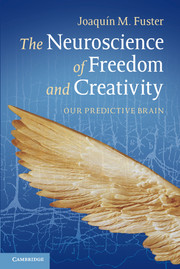6 - Freedom in speech
Published online by Cambridge University Press: 05 June 2014
Summary
Language is a process of free creation; its laws and principles are fixed, but the manner in which the principles of generation are used is free and infinitely varied. Even the interpretation and use of words involves a process of free creation.
Noam ChomskyThe subject of this chapter is the power of speech to protect and enhance our freedom. Thus the focus here is on verbal expression as the brain’s tool and guarantor of freedom in human society. Speech is the most human of all human abilities, the ultimate achievement of the evolution of organisms in their long journeys of adaptation to their environment. By speech we demarcate our existence among our fellow humans. By speech in the future tense we expand that existence forwards in time and assert our liberty to do it.
Speech is the verbal expression of language, which is a core cognitive function in the neurobiological patrimony of our species. Language is so central to cognition that some have equated the two. “Logos” (Greek, word) is at the essence not only of language but also of logical thinking, the two most distinctive constituents of the human mind. Their cognitive primacy, however, does not negate their primal origin. There are means of communication in lower species that qualify as precursors of language, though they are far from language itself. The cerebral evolution of language is accompanied by the evolution of the anatomical apparatus for talking.
- Type
- Chapter
- Information
- The Neuroscience of Freedom and CreativityOur Predictive Brain, pp. 157 - 190Publisher: Cambridge University PressPrint publication year: 2013



